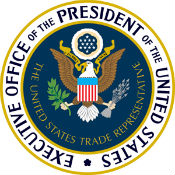 As reported last week, the RIAA and MPAA have recently made their respective submissions to the US Trade Representative, each detailing lists of the world’s ‘rogue sites’ and ‘notorious markets’. Unsurprisingly, several are hosted in Ukraine.
As reported last week, the RIAA and MPAA have recently made their respective submissions to the US Trade Representative, each detailing lists of the world’s ‘rogue sites’ and ‘notorious markets’. Unsurprisingly, several are hosted in Ukraine.
The MPAA singled out two sites. First up Kinogo.co, a streaming links site that the industry group says enjoyed around 23.5 million visitors in August ’15 alone. Also under fire was ExtraTorrent.cc, one of the world’s most popular torrent indexes. Hollywood happily piled on the drama.
“Extratorrent.cc claims astonishing piracy statistics: offering almost 1.4 million free files with sharing optimized through over 43 million seeders and more than 60 million leechers,” the MPAA wrote.
But it was the RIAA’s report that referenced the war-torn country most often. Ukraine-hosted piracy sites were mentioned several times, adding Torrentreactor.com, file-hosting giant EX.ua, NewAlbumReleases.net, MP3va.com, MP3caprice.com and Bajui.com to those already mentioned by the MPAA.
Current criticism is not dissimilar to that piled onto Ukraine in previous years, a situation that has landed the country on the USTR’s trading blacklist for its alleged trampling of U.S. intellectual property rights. However, it now appears that Ukraine wants to improve its standing with the United States.
According to an announcement from the Ministry of Economic Development and Trade, a meeting of Ukraine’s Cabinet of Ministers on October 21 approved draft legislative amendments aimed at the “protection of copyright and related rights on the Internet.”
The amendments, which reportedly include “effective mechanisms” for combating online piracy, will be submitted shortly to the Supreme Council of Ukraine. According to the government the draft was developed “in consultation with representatives of business associations” and the owners of hosting providers.
The Ministry says that those consulted suggested the introduction of a number of tools designed to prevent the spread of pirated content. They include the “pre-trial deletion” and/or “restriction of access” to copyright-infringing content, which sounds a lot like DMCA-style takedowns and Russia-style site-blocking.
Also on the table are financial penalties, which could see services that fail to remove or block access to infringing content hit with fines of between 500 and 1,000 times minimum income levels. Similar fines are also on the table for services which fail to identify users who post copyright-infringing content.
Deputy Minister of Economic Development and Trade Yulia Kuznetsov said that the measures are essential for regaining the confidence of external trading partners.
“Copyright protection as a key asset in any business and is a prerequisite for attracting investment in Ukraine,” Kuznetsov said.
“It is therefore important to get rid of the dubious image the country has with its high levels of Internet piracy. This requires effective mechanisms for blocking pirated content. Such mechanisms are inherent in the bill. Their use will launch an effective fight against Internet piracy.”
That the measures are designed to warm relations with Hollywood, the record labels and their friends at the USTR, is made clear by Lena Minich, Director at the Department of Innovation and Intellectual Property.
“This bill is another step towards creating a favorable investment climate in Ukraine,” Minich said.
“Also, it will prevent the use of economic sanctions against Ukraine as a ‘priority country’ in the [USTR’s] ‘Special 301 Report’ and brings Ukraine’s legislation into line with EU countries.”
The bill is part of a package of intellectual property amendments which also aim to tackle patent trolling, rights in software development, plus issues with royalties and collection societies.
Whether the anti-piracy measures under consideration will be enough to appease the United States will remain to be seen. In the meantime, Ukraine remains on the USTR’s ‘naughty step’ and the pressure continues.





